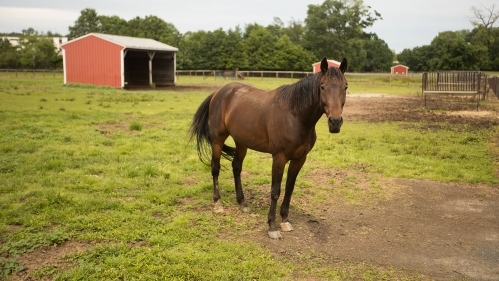
Horse Pasture Management
Grazing horses on well-managed pastures offer many advantages for horses, their owners, and the environment. A well-managed pasture:
- Reduces feed costs by decreasing the amount of hay needed for proper nutrition.
- Helps distribute manure in the field.
- Allows horses access to exercise that is necessary for proper digestion, respiration, and overall well-being.
- Provides opportunities for equine social interaction.
- Reduces stress and boredom.
- Reduces bedding and labor costs.
- Provides an aesthetically pleasing environment.
The horse is a naturally grazing animal designed for continuous intake of forage. Horses need to consume feed at a rate of 1.5% to 3.0% of their body weight each day, on a dry matter basis. For proper digestive function, at least 70% of this feed should be provided as long stem forage, which can be provided by pastures of good quality hay. A well-managed pasture can provide complete nutrition for most mature, healthy pleasure horses and can eliminate the need for grain concentrates.
Pastures that are being used as a major source of nutrition will require different management protocols than pastures that are being used primarily as a source of exercise and social interaction. Regardless of the intended use of the pastures on the farm, pastures need to be managed in order to provide ground cover and optimum forage quality for horses.
This web site has been designed to provide horse owners and farm managers with current, research-based information that can be used to develop pasture management plans that match individual farm goals.
Check this site often for new pages and updated information on topics such as manure management, forage-related equine health issues, horse farm equipment suggestions, new forage varieties, and pasture management issues.